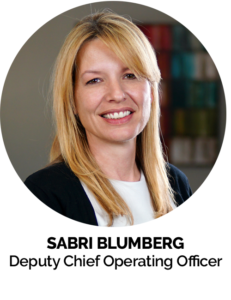Last updated on September 26th, 2024 at 04:54 pm
 What exactly does a Treatment Coordinator for a dentist do on a day-to-day basis? What kind of job description would they have? And even more important – what type of expectations might you have for them and how would you measure their performance?
What exactly does a Treatment Coordinator for a dentist do on a day-to-day basis? What kind of job description would they have? And even more important – what type of expectations might you have for them and how would you measure their performance?
The position of “Treatment Coordinator,” for a dental office is often misunderstood. This leads to the job description wildly varying from office to office.
To help clarify matters, I wrote an article on the subject years back – titled: “What Does a Treatment Coordinator Do?” It was a bit of an overview and stressed the difference between the Treatment and Financial Coordinator positions.
Now, we had a TON of feedback on this article. And to be honest – I had no idea that information on the Treatment Coordinator position was so in-demand. And a ton of the feedback was…more questions about how this position works!
With that mind, I wanted to write an article that fully explained the position and give a deeper insight into the expectations and day-to-day job duties of a Treatment Coordinator. As I got to writing it, it became a LONG article. So, we’re publishing part I of the article this week, with part II to follow next week.
So, with all of that said, let’s have a look at this job.
Purpose, Function and Expectations.
 To properly understand the Treatment Coordinator position in a dental or dental specialist practice, let’s start with a comparison to similar positions in other businesses.
To properly understand the Treatment Coordinator position in a dental or dental specialist practice, let’s start with a comparison to similar positions in other businesses.
In any business – especially a service business, someone has to SELL the services (and their accompanying products).
If the product or service is not SOLD, it does not get delivered and the company does not expand, make adequate income and so on.
(Related: Should You Hire a Full Time Treatment Coordinator?)
And even more important, most businesses have someone in charge of the “sales force.” That person in-charge is responsible for the company’s income. They have direct influence over the revenue generated by that company.
In a dental practice, you’re providing dental services. Obviously, you would not provide dental services that are not needed – e.g. you would not do a crown on a patient that does not NEED a crown. And truthfully, I wish all businesses worked that way – selling things only based on need, or want if it’s a desired service or product. You could call veneers in most cases as an example of a “want” service as opposed to a “need.” Clinically they may not be required, but the patient wants them and buys them.
As most dental professionals know, patients (in many cases) don’t just “buy” what they need. If a patient needs four crowns – you’ll often hear that they, “want to wait,” “think about it,” “use their insurance over the next two to three years,” etc. Dentistry doesn’t always just “sell” itself.
Which brings us to the subject of sales. It’s a touchy word in healthcare. Doctors don’t want to think their office is “selling” anything. In other words – sales are allegedly “bad.”
So, let’s tackle this issue for a minute. With regards to how we work here at MGE, there is a definitive definition of what selling is…and is NOT.
(Related: Presenting Treatment with Confidence)
In dentistry, good sales is NOT: Lying, high-pressuring the patient, looking at the patient as a “dollar sign,” upsetting patients, or trying to get them to do or buy something they DO NOT need.
Now, some salespeople in the world do this. And…selling gets a bad name.
In our view, sales IS: Doing what is best for the patient/customer in a caring, considerate fashion. Using good communication to educate the patient/customer so that they understand and pursue the treatment they truly need. Generally, after you “sell” someone, you would be in better communication with them and at a more friendly level. Sales is about the customer and what’s best for them. It’s about helping them overcome the barriers to obtaining what they need. And those barriers may be money, time, worries, questions, etc. In the end the purpose of selling is helping the patient get the services they need. They understand the services, have worked out how to pay for them and are scheduled for them.
Make sense?
After all, a dental office exists to provide the service of…NEEDED OR WANTED DENTISTRY. Regardless of insurance coverage. The office is there to help get patients healthy!
So, ultimately, the Treatment Coordinator is responsible for selling needed dental services (as diagnosed by the doctor), to the practice’s patients.
The doctor also has a role in the sales process. And the size of that role depends greatly on the Treatment Coordinator’s skillset.
At MGE we teach doctors how to sell by improving their communication skills. Patients are most apt to listen to the doctor.
The doctor should know how to handle the entire sales process – from education, answering questions and addressing objections to discussing finances.
At minimum, and regardless of the Treatment Coordinator skillset, the doctor would at least explain the treatment he or she diagnosed to a patient and tell them the cost. With a newer Treatment Coordinator, the doctor may advance the case presentation process further, addressing objections and covering payment options.
(Related: 3 Tips on How to Handle Patient Objections)
 As a Treatment Coordinator’s skillset improves, the doctor can complete the “pass” earlier in the process – i.e. to the point where they discuss treatment and mention cost and then the patient goes off with the Treatment Coordinator to work out how to get started.
As a Treatment Coordinator’s skillset improves, the doctor can complete the “pass” earlier in the process – i.e. to the point where they discuss treatment and mention cost and then the patient goes off with the Treatment Coordinator to work out how to get started.
In any event, it’s not a good idea to take a new Treatment Coordinator and dump all of this on them without the proper skills to handle patient objections.
But, you can see the doctor and Treatment Coordinator have a close working relationship so, you would expect them to coordinate regularly.
In the end, the Treatment Coordinator is responsible for the office’s collections. If there is only one Treatment Coordinator, they are in effect the head of the office’s “sales force.” They are responsible to ensure patients get onto their needed treatment plans. It’s a big job and it’s important to fill that position wisely as they have a direct relationship with the “health” of the practice.
Personally, I feel that the Treatment Coordinator position is one of the most rewarding positions in the office. You have a front row seat to the “before and after’s” with patients and their dental health. You’ll see, up close, the life-changing stories that occur when a patient transforms their smile or gets rid of conditions that have been nagging them for years.
Now, as a side-note, if you’re wondering how to get the doctor and Treatment Coordinator trained on the sales and communication skills they need, I’d recommend coming to MGE. We deliver free seminars all over the country on this subject that you can find out more about here. And, if you really want to know what you’re doing, I’d recommend that you come to the MGE Communication and Sales Seminars here in Florida. These are not free but are nominally priced and create an amazing result – the average client sees a sustained increase of $26,000 per month the first year! If you can’t make it to Florida or one of our seminars around the US or Canada, you can also check out our sales and communication training on our online training platform DDS Success! Click here to schedule a free demo today!
Job Duties
In a nutshell, the day-to-day duties for the Treatment Coordinator would entail working with patients after diagnosis and case presentation to handle Financial Arrangements and ensure they get scheduled to start.
Where they come in on the case presentation process depends on the office and would be worked out with the doctor. Some doctors have the Treatment Coordinator sit in on the entire presentation. Others have them come in when the fee discussion begins. There’s no right or wrong way – it’s a matter of personal preference.
Handling the Financial Arrangements would entail working out how the patient was going to pay – i.e. credit card, check, third-party financing, etc. and wrapping up all of the paperwork on this.
Once all of this is completed the Treatment Coordinator would work with the Scheduling Coordinator to get the patient scheduled – soon – to start their treatment! Keep in mind – nothing will dampen a patient’s enthusiasm more than having to wait three weeks to start their treatment plan! Ensure they get scheduled to start as close to NOW as possible!
(Related: 7 Steps to a Well Trained Staff)
With the idea that the Treatment Coordinator is responsible for office collections, there are two ways to approach the position: passively or proactively.
 A passive approach would be to sit in your office and wait for patients to be sent to you who need to sign up for their treatment plans.
A passive approach would be to sit in your office and wait for patients to be sent to you who need to sign up for their treatment plans.
While this is part of the job, it doesn’t guarantee you’ll make enough income for the practice. If there’s only three patients in the practice that day who need treatment, even if you do a good job of closing them and collect 100%, it still might not equate to the amount of income the office is looking to achieve.
So, the first thing the Treatment Coordinator should know is how much income/collections they are expected to make every month – what’s the monthly “goal.” When they know this, they can switch from a passive position to a proactive position so they can make sure those goals are met.
With that in mind, let’s take a look at the different types of patients that a Treatment Coordinator will be working with in the practice:
- New patients
- Recall patients with outstanding treatment
- Recall patients with newly diagnosed treatment
- Patients actively working on a treatment plan with the doc but haven’t accepted the complete treatment plan yet
- Consults (patients put on the schedule for a treatment presentation)
- Patients with outstanding treatment that have not accepted their treatment plan yet (the infamous “incomplete treatment list,”).
Generally speaking, if I were to walk into any dental office in the United States or Canada, I would estimate that maybe a third of the treatment that is diagnosed actually gets done. It’s probably less.
Sure, there are weeks or months where you do more. But on average, one third or less. You can check this for yourself. Look at the patients on the schedule for today and tomorrow. How many have incomplete treatment plans? I’d bet a bunch. Imagine if the compliance rate was closer to 80%. Imagine what that would do for the office. It would expand, could hire more staff, would be more profitable. And more important – imagine what it would do for all of those patients. They would be healthier. So, when your office collects more, sure it means more money, but what it actually represents is more patients improving their dental health! Something to keep in mind.
(Related: Where to do Treatment Presentations)
And all of this is without even discussing new patients. Many of whom also need treatment.
So, there’s usually more than enough outstanding treatment that’s been diagnosed and has not been accepted. The primary reasons for lack of treatment acceptance would be:
- Lack of communication/sales skills with the doctor and/or Treatment Coordinator, leading to
- Lack of understanding by the patient of the importance of the treatment plan – i.e. a cruise or a new TV becomes more “important” than the dentistry they need. It’s not of course – they just didn’t “get it” when the doctor or Treatment Coordinator explained it or
- When the treatment was presented, it was done in too small of a time window to properly address patient questions and concerns.
Numbers “1” and “2” above are handled with training as I mentioned earlier. The doctor and Treatment Coordinator need to have a high level of sales and communication skills.
Number 3 is handled by scheduling treatment presentations with adequate time to complete them
You’re not going to “close” a $10,000 case in 5 minutes. It’s just not enough time. There’s no time to answer questions, address concerns, etc., much less fully explain the treatment. For that matter, if you and the doctor don’t have time to close a case, you’re better off scheduling the patient to come in for a consult appointment. We talk about how to use consult appointments to boost case acceptance in Dr. Winteregg’s series of articles: The Seven Steps to Comprehensive Case Acceptance and in our COO Jeff Blumberg’s article: “3 Ways to Boost Case Acceptance.”
And if you want to be proactive about case acceptance, there are a few things you’ll want to keep in mind:
You’re not going to close everything. And you can’t make a sales goal unless you have enough to present. You can’t just “make up” treatment. It has to be needed and diagnosed. So, you need enough people on the schedule who need treatment. For example, if my goal were $5,000 per day, and I only have $3,000 in diagnosed treatment to present today, I’m going to have to really rely on something lucky happening in order to make it.
(Related: The “Right” Words to use in an Exam and Treatment Presentation)
If my goal is $5,000 and I only have $5,000 in potential treatment plans to close, I would really need to be “on fire” and have everything go perfectly in order to make my goal for the day.
If my goal is $5,000 a day, I probably want at least double that in outstanding treatment scheduled to be presented every day because I know I’m not always going to close everything. I’m at risk if a patient misses their appointment, gets the flu, etc. So, if I ensure that we schedule double what I need then I can give myself enough leeway to make my goal.
So, if a Treatment Coordinator wants to do their job proactively, they’ll have to maximize the potential income and be smart about it.
Let’s assume you’re handling the day-to-day traffic coming from the doctor’s treatment presentations to both new patients and patients of record. How would a Treatment Coordinator beef up the schedule a bit and take some control to ensure they have enough dentistry on it to present each day?
Well, here’s where we get proactive! And we’ll talk about this, how to manage your day as a Treatment Coordinator, the statistics you should track and much more in next week’s post! See you then! To read part 2 of this blog post, click here!



No Comments
Be the first to start a conversation